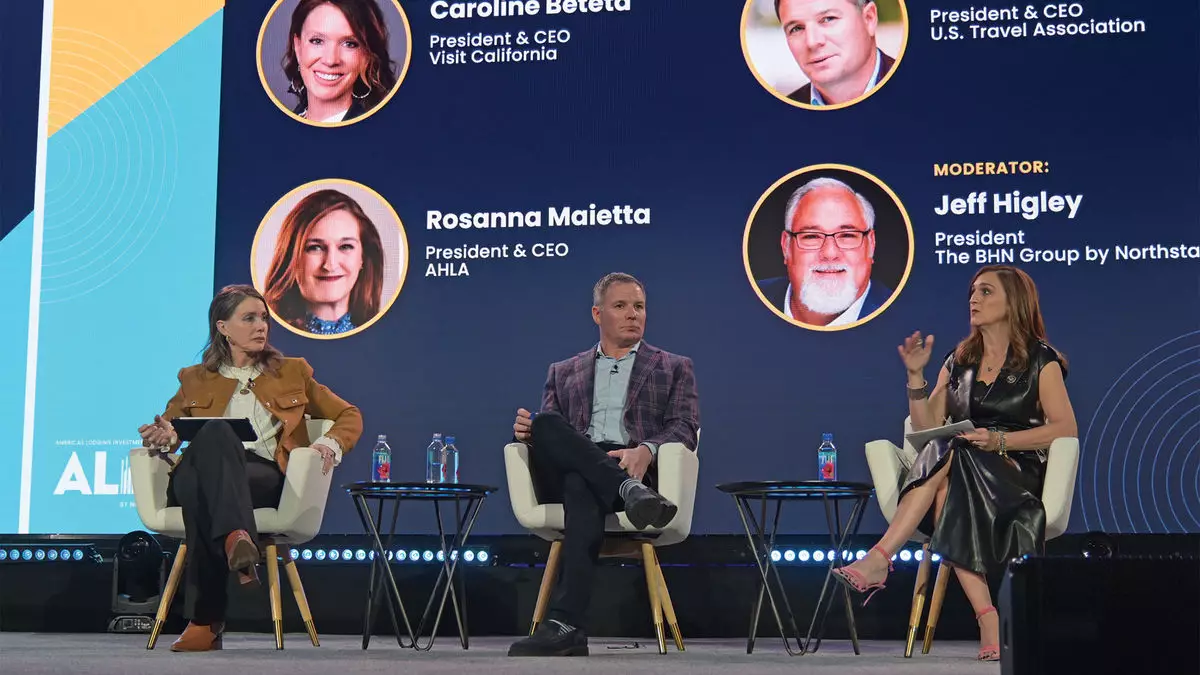The hospitality industry in the United States is at a pivotal crossroads, as hotel executives gather to discuss pressing issues at the Americas Lodging Investment Summit in Los Angeles. Among the multitude of concerns, the vitality of the workforce emerges as paramount. Executives are increasingly aware that workforce challenges and the need for adequate staffing in the hotel sector are intricately linked to immigration policies that are in flux. The need for legal immigration solutions has become a clarion call from industry leaders who have experienced firsthand the impact of stringent policies on operational effectiveness.
Hilton CEO Chris Nassetta encapsulated the sentiment of the moment when he stated, “One of the most important issues in our industry for time and eternity has been workforce…” It is evident that for many hotel executives, the ongoing struggles with recruitment and retention require immediate outcomes that only targeted immigration reform can provide. Unlike traditional views that isolate immigration as a single-faceted issue focused solely on border security, industry leaders advocate for a more nuanced dialogue that recognizes the need for skilled individuals in an industry that has been under severe strain due to labor shortages.
Craig Smith, CEO of Aimbridge Hospitality, emphasized the importance of addressing legal immigration more directly. He articulated the immediate need for skilled workers in specific roles that remain unfilled despite a clear demand from the industry. The argument is clear: If the U.S. has openings in the hospitality sector that could be filled by skilled immigrants, a streamlined process for legal entry should be a priority. The disparate realities of a political landscape often mired in controversies regarding immigration policy complicate this narrative.
The discourse surrounding immigration is not easy; it is emotional and ripe with challenges. Rosanna Maietta, CEO of the American Hotel & Lodging Association, acknowledges these complexities while calling for practical solutions. Her observation that comprehensive reform appears simplistic yet unlikely has brought to light the pressing need for adjustments to existing work programs. During the conversation, she highlights the cumbersome nature of the H-2B visa process, which remains a lottery system. It is this lack of predictability that causes businesses to experience frustration, considering they need consistency to thrive amidst labor shortages.
In an industry dependent on a seasonal workforce, the ramifications of ineffective immigration policies extend beyond employment figures; they have profound impacts on service quality and economic growth. The reality is that without proactive measures in immigration reform, many establishments may face severe operational challenges.
In a broader context, the worry escalates with the idea that U.S. policies might inadvertently deter international visitors. As Marriott International CEO Anthony Capuano pointed out, previous travel restrictions and potential enhanced vetting may harm the industry’s recovery post-pandemic. A viable travel network relies on the free movement of individuals, and any perceived friction can drive international travelers away.
Moreover, U.S. Travel Association CEO Geoff Freeman rightly points to a concerning message being sent to prospective international visitors. He highlights the inconsistency in signaling—from deterring “illegal visitors” to ambiguously welcoming legal ones. The operational reality includes handling lengthy visa processing times that can exceed hundreds of days. This conflation of illegal and legal immigration issues shapes a narrative that could be detrimental to the recovery plans of hotels aiming to revitalize post-pandemic tourism.
While the hospitality sector faces an array of significant challenges, industry leaders such as Nassetta remain optimistic. He believes that once the uncertainty around these policies is resolved, the industry’s fundamental strength will prevail. The call for a more stable, compassionate approach to immigration reflects not just workforce needs but also an overarching desire for an industry that truly embraces inclusivity. Ultimately, the combination of workforce stability and a welcoming immigration policy will be essential for building a future where the hospitality industry can once again thrive.

